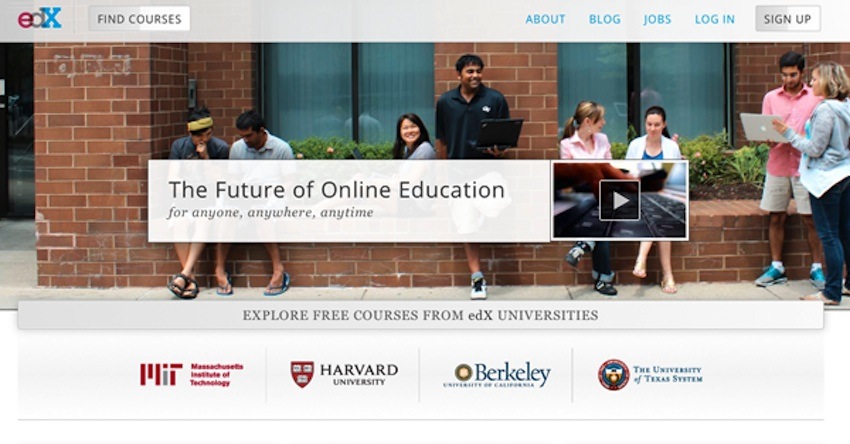Is the Internet Sending Higher Education the Way of the Newspaper Industry?
MIT has led the way in pushing the higher education industry to embrace the digital revolution, but Michael Cusumano, a professor at MIT’s Sloan School of Management is asking his colleagues to slow down and consider whether—as with the newspaper industry before it—the higher education industry will come to regret the high cost of offering its goods and services for free.
Massive open online courses (or MOOCs) have huge potential benefits. Through EdX, a joint program with Harvard and now several other universities, MIT gives anyone with an internet connection unprecedented access to the resources of a world-class university by offering courses online free of charge. Several other startups, like Coursera and Udacity, operate on a similar model. The open, egalitarian nature of the web is great, though there is always debate over whether online courses can really replicate the interactive experience of a residential university. Cusumano’s critiques are concerned less with this and more with the business model as MIT has currently set it up.
Cusumano wrote an article airing his concerns for the April issue of Communications of the ACM, the Association for Computing Machinery’s monthly magazine. In it, he examines how an economic model that offers goods and services for free over the web has hurt other industries, from newspapers and magazines to encyclopedias to music.
“Other industries that went digital became enormously disruptive, sometimes thoughtlessly,” Cusumano says in an interview. “And so in terms of education, I just want my colleagues to slow down a little bit and think about the implications of what we’re doing and how we’re doing it. I don’t think we can stop the internet … But you can figure out a way to not be crushed.”
If newspaper editors could time travel back to, say, 1997, most of them would probably rethink the decision to put their entire product on the web for free. With online higher education just getting started in a serious way, might 2013 be the higher education industry’s 1997? If so, universities probably want to confront these economic questions now, he says, lest they end up like industries that have now had to backtrack after taking huge financial hits. In the article, he writes:
The industries I follow closely are still struggling to recover from the impact of free. The New York Times made a mistake when it offered its content for free over the Internet, and is now trying to backtrack and adopt a hybrid model and charge for some usage … Hulu.com, the TV distribution joint venture formed in 2007 and led by NBC, Fox, and Disney-ABC, once gave away all its content for free, with advertising. It has evolved as well to a hybrid model, adding a monthly subscription service with premium content, much like Netflix.”
The benefit of free, open online education is that it puts everyone on equal footing. A brilliant self-starter in India can access the same knowledge that an MIT freshman can. But Cusumano worries that if people become conditioned to believe the value of most higher education is zero dollars, the egalitarian ideal may actually result in less variety and fewer options for everyone.
In the article, he notes that digital disruptions in other industries have rewarded the few big players who can afford to adapt while putting others out of business. With free online education he’s not as worried about the future of MIT and Harvard, which have massive endowments, fundraising potential, and a residential experience unlikely to lose its appeal. He’s more worried about middle tier and community-based higher education.
“You’ve got really great teaching at a lot of these regional institutions because that’s what they’re devoted to primarily,” he says. “Places like Harvard and MIT are mostly research institutions. I think we pay a lot of attention to teaching but we’re also creating knowledge … So I would hate to see more of the very good teaching institutions struggle and fail.”
Cusumano says some of his MIT colleagues have been receptive to his critiques. The president has put him on a task force to study the implications of online education on the residential education model. But Cusumano is realistic about how much can be done at this point.
“One of the things I’m learning from all these comments [surrounding his article] is that there’s almost nothing we can do about it, and the only defense is to make sure what you offer is really high quality and distinctive. So maybe this is really a good challenge to everybody to really step up their games.”



